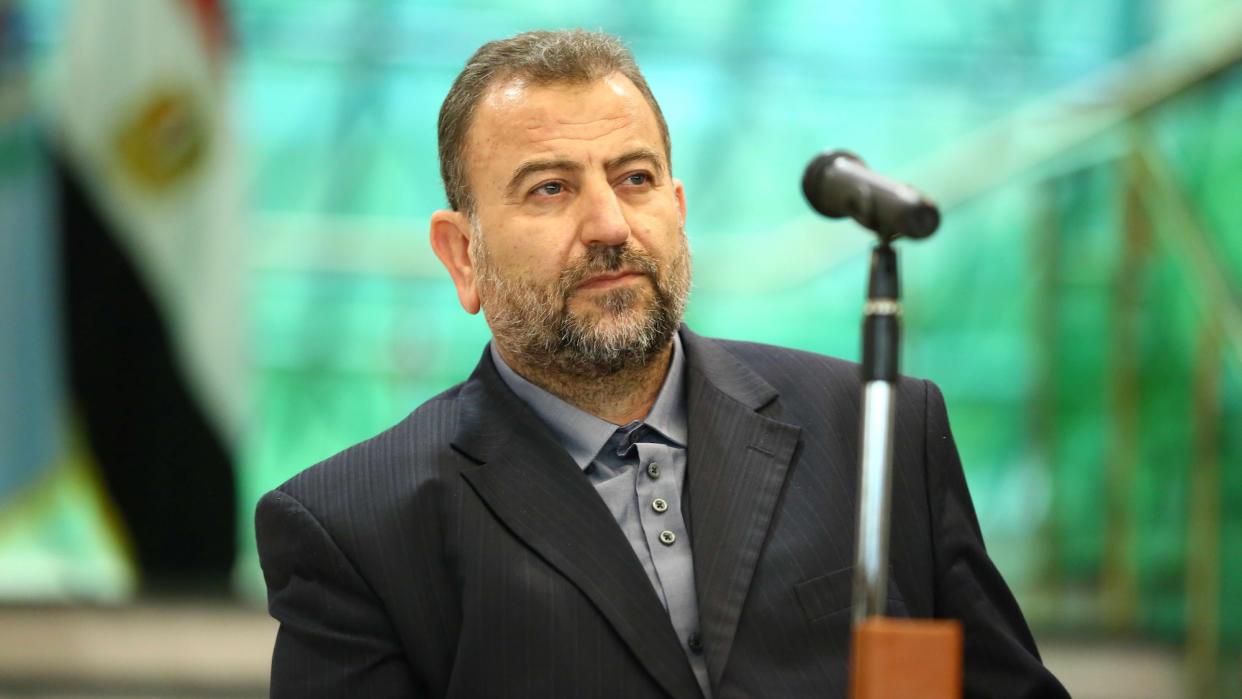Hamas deputy leader Saleh al-Arouri killed in Beirut: will Hezbollah retaliate?

Hamas has blamed Israel for an explosion that killed its deputy leader Saleh al-Arouri in Beirut on Tuesday.
The group said Al-Arouri, one of its founders, was killed by an Israel Defense Forces drone in a "cowardly assassination". It added that the blast in Lebanon highlighted Israel's "failure" to "achieve any of its aggressive goals in the Gaza Strip". Israel has not officially claimed responsibility for the incident.
For Israel, the explosion also risks escalating already heightened tensions with the Lebanese militant group Hezbollah, which has said the "dangerous development" will not "go without a response or punishment".
'A serious blow'
Even before the war in Gaza, the rhetoric maintained by Hezbollah was that any assassination by Israel on Lebanese soil would initiate a "harsh" response, said Amos Harel at Haaretz. However, things "look a bit different now, in light of the war", and though Hezbollah has "paid its dues" with daily attacks on Israel across its border, it has carefully limited them to "remain below the level of war" and avoid escalation. Following through on its promise to respond would undo that, reducing its "room to manoeuvre and increase the chances of a mutual miscalculation".
A "significant response" from Hezbollah over the alleged assassination would potentially send the "conflict spiralling into an all-out war on the northern border", agreed The Times of Israel, something both sides may have initially wanted to avoid. What may be different about this particular killing, however, is that al-Arouri was "regarded as close" with the Hezbollah leader Hassan Nasrallah, and was scheduled to meet him the day after his death.
The location of the attack, in Beirut's southern suburb of Dahiyeh, "a neighbourhood that is a stronghold" for Hezbollah, is also important, said Nicole Johnston at Sky News. The strike there represents a "serious blow" to the Iranian-backed group "on their home turf", and could be the moment that intensifies the fighting from the "calibrated and contained" approach it has had so far.
'Campaign of assassinations'
The killing of Al-Arouri is the "first strike in a campaign of assassinations overseas" that Israel has promised since the Hamas attack on 7 October, said Jason Burke in The Guardian. As an "influential" leader and Hamas's "main link" to Iran and Hezbollah, Al-Arouri was almost certainly a "carefully chosen" target, with Israeli Prime Minister Benjamin Netanyahu telling the press in November that he had instructed the Mossad to take out key Hamas leaders "wherever they are".
Though immediate questions turn to the nature of the Hezbollah response, the assassination will "alarm the wider Middle East" and stoke "fears attacks like this could happen anywhere, at any time", added Johnston at Sky News. There are "top leaders of the political wing of Hamas" located in Qatar as well as Lebanon, and they are known to "frequently visit Egypt and Turkey", potentially spreading the reach of the war in Gaza.
The consequences of assassinations are "often very unpredictable", concluded Burke, and the "strategic fallout" for Israel "could be very significant". Israel's risk in killing Al-Arouri in Beirut could lead to a situation it has "sought to avoid", fighting in a "two-front war" with Hezbollah and Hamas.

